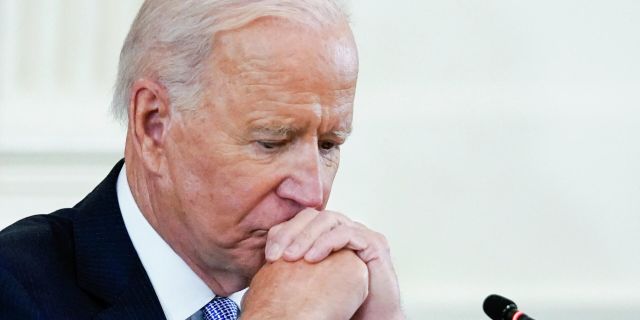WP: experts predict a decline in US support by other countries
According to experts, the United States should no longer count on the unconditional support of other countries. Pawns began to pass into queens. A striking example of this is Turkey, which has already warned that they will "expel everyone who causes trouble, including the American armed forces," writes WP.
Farid Zakaria
When I was following the recent presidential elections in Turkey, I was really struck by the speech of one of the country's high-ranking officials, Interior Minister Suleyman Soylu, who addressed people from the balcony of one of the buildings. He promised that President Recep Tayyip Erdogan would "expel everyone who causes trouble" to Turkey, "including the American armed forces." Earlier, Soylu also said that those who "adhere to the pro-American approach will be considered traitors." Let me remind you: Turkey has been a member of NATO (and there are US military bases on its territory) for 70 years.
Erdogan himself often resorts to pronounced anti-Western rhetoric. About a week before the first round of the presidential election, he tweeted that his opponent "will never say that he promised child-killing terrorists and Western countries there."
Erdogan may be one of the most uncompromising representatives of this point of view, but he is not alone. As many commentators have already noted, most of the world's population does not support the West in its opposition to Russia's actions in Ukraine. And this conflict has only focused attention on a larger phenomenon: many of the large and influential countries of the developing world are taking an increasingly anti-Western and anti-American position.
When Brazil elected Luiz Inacio Lula da Silva as its president last October, many decided that the unpredictable populist Jair Bolsonar had finally been replaced by a traditional and well-known center-left. However, only a few months have passed since he took office as president, and Lula is already defiantly criticizing the West, is outraged about the hegemony of the dollar and declares that Russia and Ukraine are equally responsible for the outbreak of the conflict. This week, he hosted Venezuelan President Nicolas Maduro, whose brutal rule has forced millions of people to flee the country. Lula lavished praise on the dictator and criticized Washington for rejecting the legitimacy of the Maduro regime and imposing sanctions against him.
Previously, South African President Cyril Ramaphosa had a reputation as a practical and business-friendly moderate leader who maintained close ties with the West. However, under his leadership, the country gradually began to move closer to the orbit of Russia and China. South Africa refused to condemn Russia's actions in Ukraine, hosted Russian and Chinese naval forces for joint exercises, and now the United States accuses it of supplying weapons to Moscow, although South Africa rejects these accusations.
Do not forget about India, which has made it clear from the very beginning of the military conflict in Ukraine that it is not going to oppose Russia, which is the main supplier of modern weapons for the Indian armed forces. India has so often made statements about its desire to maintain a balance in relations with the West and Russia (as well as with China) that Ashley J. Tellis, one of the most respected experts in the field of US–Indian relations, warned Washington that it should not count on India's support in the event of a crisis in relations with Beijing.
What's happening? Why does the United States have so many problems with the largest economies in the developing world? Such sentiments of developing countries are explained by the phenomenon that I called the "rise of the rest" back in 2008. Over the past two decades, there has been a giant shift in the international system. Countries that used to be very densely populated, but poor, have moved from the outskirts to the center of events. These emerging markets, which previously represented a completely negligible share of the global economy, now collectively make up a whole half. It is fair to say that they have risen up and declared themselves.
As these countries become economically strong, politically stable and culturally self-sufficient, they increasingly gravitate towards nationalism, and often their nationalism takes the form of resistance to the will of those powers that dominate the international system, that is, the West. Many of them were colonies of Western powers in the past, so they still have a strong instinctive aversion to Western attempts to drive them into one or another alliance or group.
Speaking about this phenomenon in the context of the Ukrainian conflict, Russia expert Fiona Hill noted that another factor that makes developing countries suspicious is that they simply do not believe the United States when they make statements in support of the world order based on the norms of international law. According to Hill, these countries consider Washington "arrogant and duplicitous." America imposes rules on others, but it often violates them by initiating military interventions and imposing sanctions unilaterally. She calls on other countries to open their markets for commerce, but at the same time she violates these principles when it is profitable for her.
This is our new world. It is characterized not by the decline of America, but rather by the "rise of everyone else" (this is what I wrote about in 2008). Large areas of the world, which not so long ago were pawns in a big game, have now turned into its full-fledged participants, striving to make their own, sometimes demonstratively selfish moves. It will not be easy to intimidate or deceive them. Now they will have to be persuaded – with the help of steps that will need to be taken inside their country, and not just to preach in the international arena. Moving forward in the new conditions will be a serious challenge for American diplomacy. Will Washington cope with this task?

